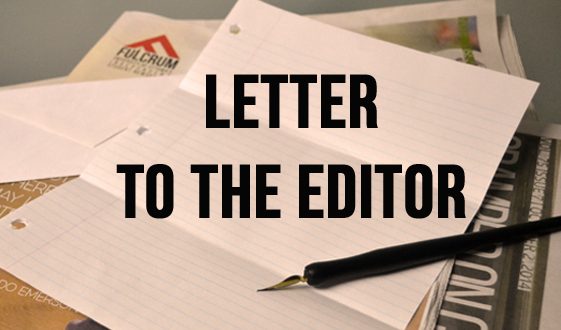How are professors teaching without the protection of tenure supposed to tackle controversial subjects?
Structural racism is deeply embedded inside North American institutions. Simply put, our society must address a juridical system that routinely produces unequal sentencing based on race, discrimination against visible minorities in the housing industry and labor markets and, of course, lamentable police brutality.
The recent controversy surrounding professor Verushka Lieutenant-Duval has put a spotlight on the role of universities in Canadian society. Some have called her racist, others have condemned a petition defending free speech on campus as evidence of entrenched white supremacy at the University of Ottawa, and voices have even called for university administrators to send a strong public message that the institution will no longer tolerate racism on campus by firing professors.
As we have seen before, the story playing out in the media right now, and the frenzy of Twitter-verse, represent a poor facsimile of what actually transpired in Professor Lieutenant-Duval’s classroom back in September. Comments circulating on social media invoke tropes and partial-truths that have transformed her into a caricature and have made her an object for public scorn.
Professor Lieutenant-Duval is not a ‘racist’ according to any conventional definition of this term. She cancelled her class last month so that her students could participate in the Scholar Strike to protest structural racism and police brutality in the United States, Canada and elsewhere. She herself, is keenly aware of the impacts of misogyny, discrimination, and oppression inside contemporary society. Her syllabus self-consciously invokes the idea of an open pedagogy to instill student sensitivity regarding questions of race, gender and sexual orientation.
We may rightly question the wisdom of uttering the ‘N-word’ in the classroom. In fact, this tragic case illustrates that the ‘N-word’ has become completely taboo, although it bears mentioning that in the French language and Franco-Canadian culture the ‘N-word’ cognates do not have the same significations as they occupy in English or the Deep South.
Regardless, any honest observer must recognize that there is a vast chasm between slurring someone deliberately with malice, and invoking a slur as part of a valid classroom demonstration. As noted by experts, the ‘N-word’ is a derogatory term precisely because it is affiliated with a historical context of racial persecution. There is a long history too, of the term’s ‘re-appropriation’ by Africans, including thinkers like Léopold Senghor and Aimé Césaire. No one disputes the right of repressed groups to reappropriate derogatory terms. This is a legitimate act of defiance, even transcendence. In fact, African-American directors liberally invoke the ‘N-word’ to subvert racism in contemporary films. One wonders if the professor had shown a thirty second clip of Will Smith if anyone would have found this objectionable?
The Lieutenant-Duval affair started when one of her students complained that under no condition could a white professor use the ‘N-Word.’ The editorial board of the Fulcrum supported this assessment, noting that in today’s age this act is never acceptable. The University president agreed, arguing that the term represents a ‘micro-aggression’ when uttered by a non-BIPOC professor on the basis that visible minorities have deemed it hurtful and they alone can judge that. Many have charged that this uttering was ignorant, insensitive or both. A more charitable interpretation is that the professor did not perceive it as thus initially because she was saluting African Americans for subverting racism, and trusted that her students had understood that she herself found racism objectionable.
When alerted by a student of unease in the class, professor Lieutenant-Duval responded by writing an apology and called for an open discussion. How students reacted to this attempt at reconciliation has mostly escaped public attention. The charade of a hearing, the leaking of selective facts to social media in violation of an oral contract for classroom confidentiality, and a botched administration managed reconciliation defamed her reputation and cast a dark cloud over her career. How are professors teaching without the protection of tenure supposed to tackle controversial subjects?
Professor Lieutenant-Duval’s crime was to violate an unwritten and inflexible rule that applies to non-Black professors. While one can debate the wisdom of uttering the ‘N-word’ even in this special context, it is clearly unfair when select students take a professor’s words and actions out of context, reappropriate them and connect them to the charge of cultural insensitivity and mischaracterize her actual beliefs and pedagogy. It is very troubling that a student would publish her personal details, including her address and phone number to target her for future abuse. The danger of this combination of virtual vilification and invasion of privacy was recently illustrated in the tragic case where Samuel Paty was beheaded in France. Professor Lieutenant-Duval is rightly concerned not only for her career but for her personal safety.
Professor Lieutenant-Duval never sought this controversy. Her resume shows a consistent commitment to teaching that embraces advocacy for repressed groups. The catalyst for this affair is not to be found in her biography, or even what happened in class last September, but how in contemporary society frustration with racism has boiled over, and how in the current political environment a misunderstanding in the classroom can be recharacterized and rapidly diffused through social media to ignite a firestorm.
The disciplining of professors based on ‘micro-aggressions,’ however, sets an unfortunate precedent and represents a slippery slope. No conscientious professor would willingly hurt their students’ feelings. However, we live in a multicultural society, and professors often delve into controversial subjects. We cannot anticipate how every student will react to a classroom exercise, or easily modulate how it makes them feel. The only thing that we can do is to insist upon science and facts, to follow explicit university policies and to nurture a climate of mutual respect. Building a climate of respect, however, does not fall exclusively on the shoulders of professors. This can only happen when administrators and students willingly collaborate, and where we accept our mutual fragility as humans. We all make mistakes and sometimes words do not come out right. Miscommunication is inevitable.
‘Tolerance’ in the classroom context means accepting differences and sincere apologies. While we must make university classrooms safe spaces for all, this cannot obviously be carried to the extreme where every student has a right to insist that the curriculum reflects their personal feelings or values. This covert principle of clientelism is a grave threat to the modern university. If we are entering a new era of politicized classrooms where tweet storms can empower students to remove professors they do not like, you will quickly create a sterile intellectual environment where the majority of professors on campus, who are precarious workers, will no longer have academic freedom, and will refrain from tackling controversial subjects.
The role of universities is to teach our students to think critically and cultivate a new generation that can look beyond surface manifestations of societal problems to spy out the deeper and more pernicious roots of injustice. That is a mission that we can all embrace.

Tom Boogaart teaches contemporary global history and has taught at the University of Ottawa since 2004, mostly full-time but always on a part-time salary. Thousands of students have passed through his classes that often delve into controversial subjects. As an officer of the APTPUO he helped to organize the (in)visible Conference last year that put a spotlight on how the ideology of neoliberalism undermines the foundational principle of the university as a public institution for higher education by transforming students into clients and professors into precarious workers.




